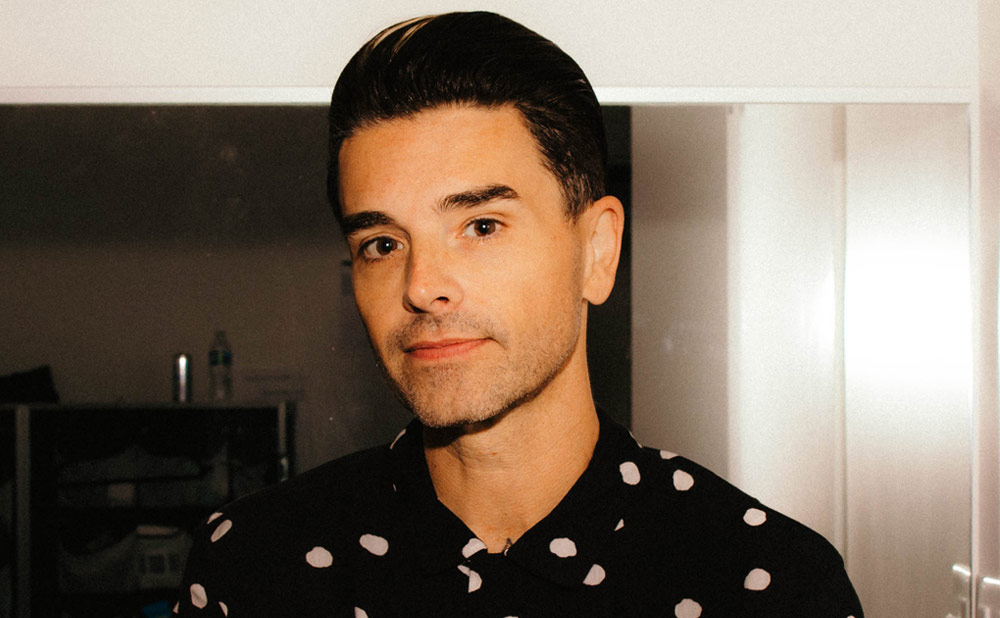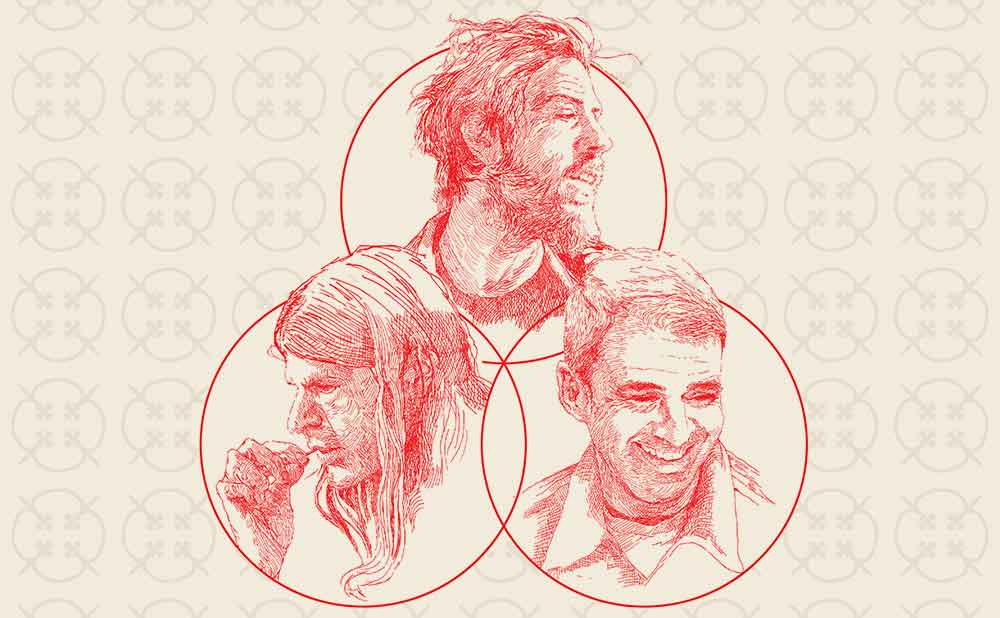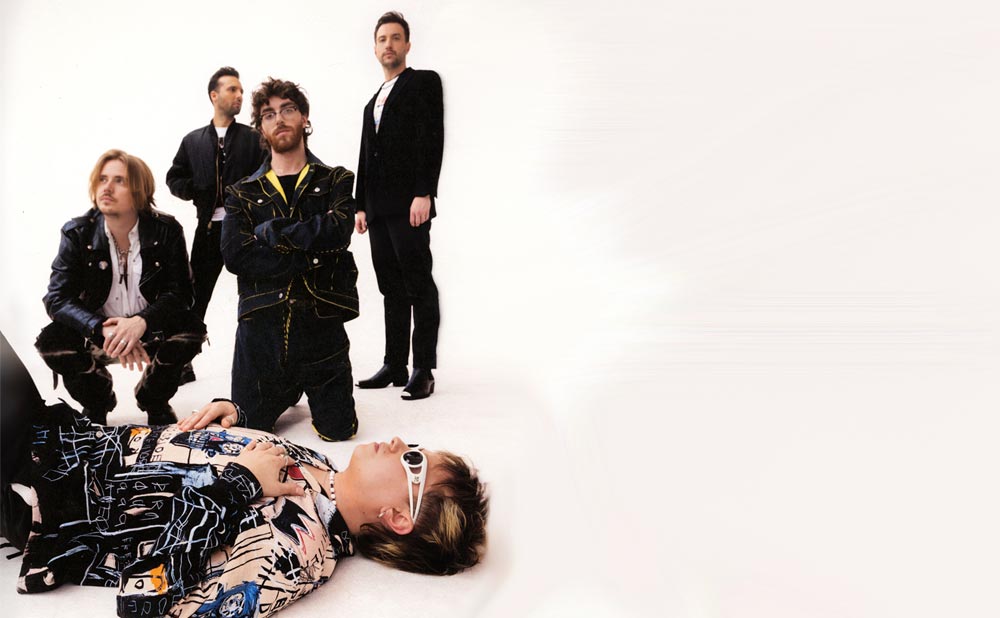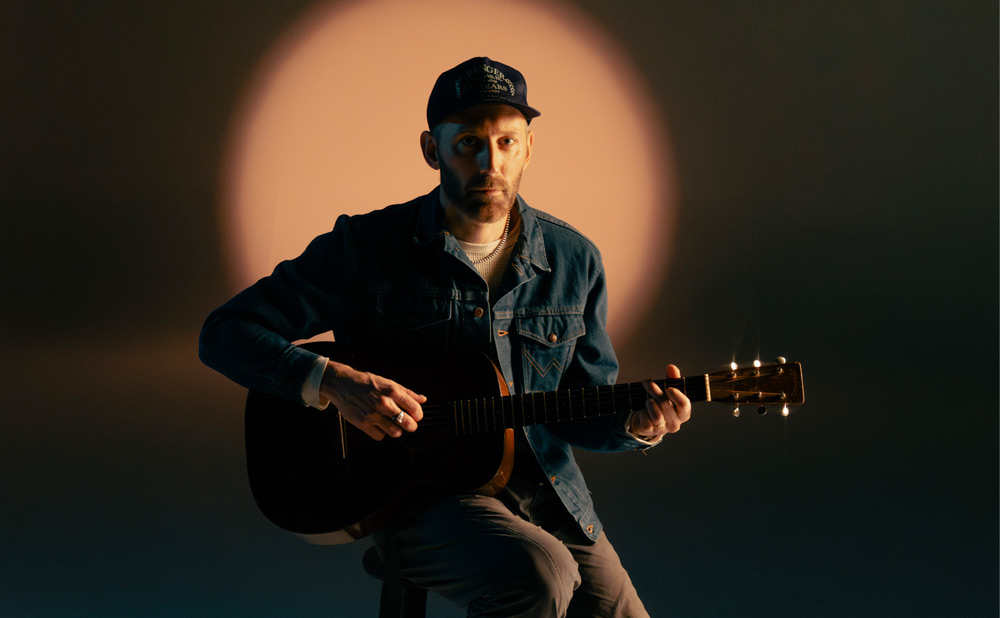Dashboard Confessional’s ninth studio album, All The Truth That I Can Tell, is both a remarkable renewal and fortunate step forward for the band’s songwriter, front man, and founder, Chris Carrabba. Having ascended great heights over the past 20 years, Carrabba found himself at a distinct crossroads as the last decade came to an end. Running on fumes, unsure if he’d ever release another album, he waited. The songs eventually came, and though the project might’ve easily come to a screeching halt following a near-fatal motorcycle accident in the summer of 2020, All The Truth That I Can Tell stands among Carrabba’s finest – a strikingly potent musical look at himself through a rediscovered keyhole, both an achievement of vision and a vital burst of artistic clarity; less like reading someone’s diary and more like reading their eyes. For the album’s production, Carrabba tapped James Paul Wisner who produced the band’s first two studio albums, The Swiss Army Romance and The Places You Have Come to Fear the Most.
“Honesty was at the heart of the writing process, at the heart of the recording process and at the heart of this collection of songs,” Carrabba says. “I had the rare opportunity to be unflinchingly honest. But I think I would have thought in the early days that that would be commonplace. Now, I realize it’s some kind of cycle within your life and there’s great personal reward in accepting that.”
Dashboard Confessional’s most recent album, 2018’s Crooked Shadows, earned acclaim upon its release, with CLASH hailing it as “still as charming, still as cathartic and ultimately every bit the record you want it to be.” All The Truth That I Can Tell first began taking shape soon thereafter with a single song written one winter evening in a Manchester, UK greenroom. The creative moment felt so transformative for Carrabba that he played the new song, “Burning Heart,” for a live audience just an hour later.
“That night, I wrote a song that I was so certain of,” he says. “Not just that it was good, but that it was powerful in some way, too.”
Though “Burning Heart” sparked the fuse, the full explosion of creativity that led to All The Truth That I Can Tell wouldn’t come until the fall of 2019. All of a sudden, Carrabba knew what to say and how to say it, clearly and sincerely, and proceeded to do so in just 10 short days.
“The songs came quickly,” Carrabba says. “I felt them. I knew I had to hole up in my house and just allow the thing to happen, and, if I got lucky, it was going to be good.”
Indeed, Carrabba’s new songs are rich with purpose and intention, merit and necessity. They tell important stories that touch on a point of progression in the veteran artist’s life while collecting his perspectives on the most vital of his experiences. From “Burning Heart” – which fittingly opens the album – and the tone-setting second track, “Everyone Else Is Just Noise,” to raucous songs of progress and affirmation like “Here’s To Moving On” and “The Better Of Me,” to more subdued moments such as the tender “Sleep In” and “Me And Mine,” Carrabba tracks his own personal evolution, viewed through a full heart. Noteworthy for its veracity, even among the famously intimate Dashboard Confessional canon, the album concludes with the brutally candid title track, “All The Truth That I Can Tell,” offering a somber look at one’s choices, consequences, and the perilousness of existence itself.
“I really mined my own soul…my own psyche on this one,” Carrabba says. “To be frank, I was being selfish. I was absolutely not thinking about any other person that might hear this. I was only thinking about me. But I can’t tell you I’m super comfortable with that idea in any other aspect of my life, except when it comes to writing songs.”
The idea of radical truth propelled Carrabba, who gazed steel-eyed inward for inspiration. Perhaps that prepared him for what was to come – just a year later, in the midst of the global pandemic, Carrabba survived a motorcycle accident and found himself in a full body cast.
“Dashboard Confessional is about the acceptance that life is challenging,” Carrabba says, “the guts to let yourself feel that and the gratitude to allow yourself to speak it, without self-judgment.”
Originally a side project for Carrabba, Dashboard Confessional grew to become one of the modern era’s most popular and influential bands, adored for its groundbreaking sound and respected for its unwavering candor. But after nearly two decades, at the peak of his visibility, Carrabba found himself somehow lured off his personal path.
“At the height of my success,” he says, “I think I felt that I was pushed off the course I’d charted for myself. It took me a number of years to figure out how to find my way back, and to be able to do so with the deepest conviction.”
While in some ways still in recovery from his accident, Chris Carrabba’s mind and intentions remain as sharp as ever before. Having made it through All The Truth That I Can Tell, he is now eager to share this triumphant new collection of songs, each of which rings as personal as family photos.
“Apparently, I did have another record in me,” Chris Carrabba says. “That means I believe I have more in me, too. What I love most about this music is the certainty I have about it. Art is an exercise in uncertainty – it’s about making sense of something that isn’t certain.”





